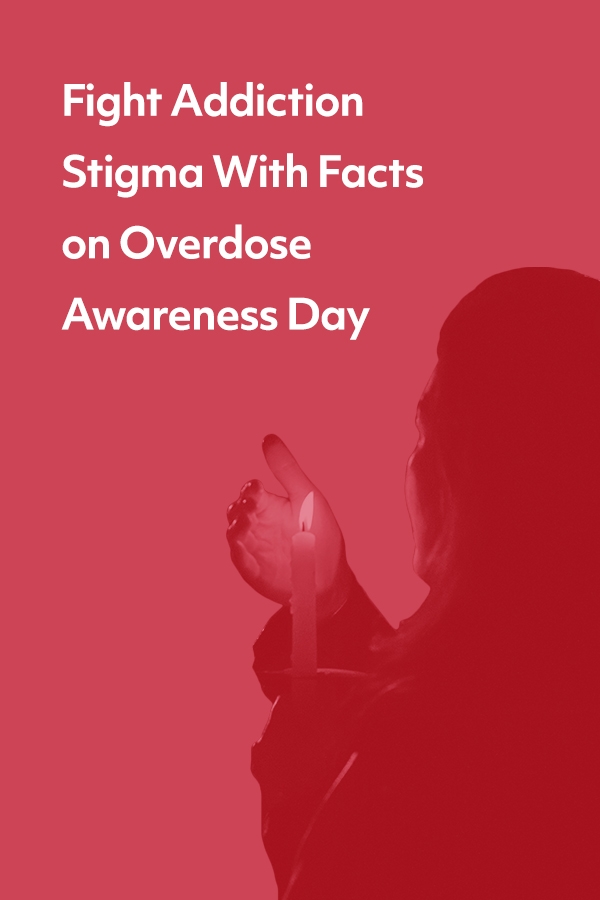August 31st is International Overdose Awareness Day. This is the perfect time to understand that the opioid crisis affects people from all walks of life and backgrounds.
Every day, more than 130 people die from opioid overdose. Opioid overdose has now surpassed automobile crashes as a leading cause of death for Americans. In order to change this, we need to recognize that it doesn’t have to be this way. Most opioid overdose deaths are preventable.
If that’s the case, what is stopping people from getting the help they need? For the most part, it’s the stigma and shame surrounding addiction that keep us from addressing this epidemic. Other public health issues, such as healthy eating and cold prevention, don’t have the same struggle with public perception. We have to fight addiction stigma in order to make a real impact in combatting the opioid epidemic. This fight begins with education and understanding, so here are four quick facts about opioid addiction:
1. Addiction is a disease, not a failure of willpower.
When someone you love is struggling with addiction, it’s easy to wonder why they can’t just stop. Especially if you’ve personally tried drugs or alcohol and not been affected by them too much. Both the American Medical Association and the American Society of Addiction Medicine define addiction as a chronic disease that changes the brain, affected by behavioral, environmental, and biological factors.
The good news about this? Like any other medical ailment, treatment is available for all addiction, including opioid addiction. Workit Health offers medication & online therapy to make recovery from opioid addiction less painful than traditional systems of care. Learn more about how our programs work.
2. Prescription opioid painkillers are commonly used and create risk for addiction.
If you receive prescription painkillers, take them as prescribed and don’t share them with friends or family. Dispose of any unused medications at medication disposal sites. Why is this important? Most adolescents who misuse prescription pain relievers are given them for free by a friend or relative, and four in five new heroin users started out misusing prescription painkillers.
This doesn’t mean that people struggling with chronic pain need give up their medication and suffer, or that anyone who takes prescription opioids after surgery will develop an addiction. It means we need to understand the risks of opioid medications, just as we do with alcohol and other substances. If you are taking prescription opioids and find yourself taking more than prescribed, or obsessing about your next dose, talk with your doctor or look into a substance use recovery program (like ours at Workit Health) to get the help you need.
3. Medication to treat opioid addiction works.
All this information about the dangers of opioids can seem scary! But if you’re struggling with opioid addiction, know that there are now FDA-approved medications to help you through withdrawal, and also to support you on the path to stable, long-term recovery. You don’t have to suffer through a cold-turkey detox or get incredibly sick before getting better. Studies show that medications like methadone, buprenorphine, and naltrexone can reduce cravings and reduce the risk of relapse and overdose. If you’re struggling, reach out to a health professional—help is available.
4. Anyone can recognize an opioid overdose, and with naloxone they can stop an overdose in its tracks.
Learning to recognize the signs of opioid overdose can help you save a life.
Signs of opioid overdose:
-
Awake, but cannot speak.
-
Slow heartbeat and pulse.
-
Slow breathing or not breathing.
-
Blue lips and/or fingernails.
-
Gurgling, snoring, or raspy breathing.
-
Choking sounds.
-
Passing out.
-
Vomiting.
-
Pale face.
If you ever suspect an overdose has occurred, the first thing you need to do is call 911. If you or someone you love misuses opioids, combines them with other sedating medications, or has been diagnosed with opioid use disorder, the Surgeon General recommends carrying naloxone. Naloxone is an overdose antidote with can temporarily stop the life-threatening symptoms of overdose.
Considering topics like overdose and addiction can feel scary—but knowledge can remove the fear. This is the goal of International Overdose Day. The Surgeon General explains, “The first step is understanding that opioid use disorder is a chronic but treatable brain disease, and not a moral failing or character flaw. Like many other chronic medical conditions, opioid use disorder is both treatable, and in many cases, preventable.”










